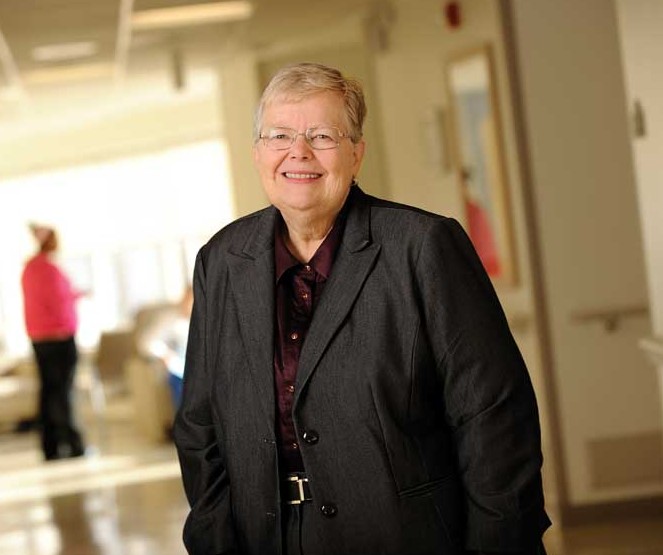By Terry Ratner, RN,
Illustration by Linda Fountain
After two years of information gathering, intense discussion, and careful planning, the Johns Hopkins University School of Nursing is planning to unveil a new doctorate of nursing practice (DNP) this winter. Designed as the highest possible degree for nurses committed to clinical work, the DNP is an outgrowth of the increasingly complex role that advanced practice nurses must play today.
“They aren’t just taking care of individual patients or groups of patients, but working in a system that requires them to understand policy, economics, and quality and safety issues, all topics that warrant preparation at the doctoral level,” notes senior associate dean Anne E. Belcher, PhD, RN, AOCN, CNE,FAAN, who co-chaired the school’s DNP task force.
Currently there are some 200 DNP programs in development across the nation—most, like Hopkins’ program, launched in response to the American Association of Colleges of Nursing (AACN) decision in 2004 to move the current level of preparation for advanced practice nurses from a master’s degree to a clinical doctorate by 2015.
At Hopkins, two separate task forces—comprising a diverse group of advanced practice nurses and key faculty members—have worked tirelessly over the past two years researching ideas, discussing curricula, identifying target audiences, incorporating the use of technology, exploring tuition issues, and creating a business plan. Their goal: to develop the best working model for the Hopkins DNP program, due to debut in January 2008.
“Throughout our process, we have taken the time to thoughtfully and intentionally explore the rationale for a clinical nursing doctorate,” notes Dean Martha N. Hill. She adds, “We deliberately postponed our process and waited to receive the AACN white papers on the essential components of a DNP and the roadmap produced by two separate AACN task forces.”
Though plans are still being finalized, former director of the master’s program and DNP committee co-chair Phyllis W. Sharps, PhD, RN, CNE, FAAN, expects an initial class of 20-25 students, who will come to the program already having earned master’s degrees. They will proceed through the course of study as a cohort, she says.
“This is a program where students receive lots of mentoring and individualized attention,” notes Sharps. “It’s important to match students with faculty who have similar expertise in a specific practice area.”
The Hopkins DNP will be consistent with the AACN’s national guidelines suggesting a minimum of 500 hours of clinical work for a post-master’s DNP degree.
Like the PhD program that prepares nurse scientists to lead interdisciplinary research teams, the DNP prepares leaders of multidisciplinary practice initiatives such as those that focus on patient safety, quality of care, and performance improvement. Both programs involve faculty at the schools of Public Health and Medicine.
The task force has recommended a program amenable to nurses working full time, so that they remain eligible for health care benefits and tuition remission, notes task force member Julie Stanik-Hutt, PhD, ACNP, CCNS.
The proposed full-time curriculum of 38 credits would be completed in 24 months, potentially through distance learning and executive-style learning opportunities.
“This is a program where the nurses meet and immerse themselves in intensive studies for a week at a time,” says Stanik-Hutt. “You’d come prepared having read your assigned materials and work online for the duration of the time.”
She acknowledges that balancing a full-time job and a full-time doctoral program won’t be easy. “You need to immerse yourself in your course work, be self-directed, and know what you want to accomplish,” says Stanik-Hutt. But the concentrated course of study has its benefits, she says: “The good part is that what you’ve learned the first semester isn’t out of date when you begin to practice.”
Despite the challenges ahead, Dean Hill is both optimistic and excited about what lies in store. She is convinced that the Hopkins DNP will fill a vital need. “The market is rapidly developing for future graduates,” she says. “Today there is a desperate need for this level of nursing professionals working and observing at the bedside and who ultimately will effect systematic change and innovation in patient care.”
For more information, or to apply to the DNP program, contact interim director Kathleen White at 410-614-4664 or kwhite@son.jhmi.edu.
 Switching Gears
Switching Gears We've Come a Long Way
We've Come a Long Way Acupressure and the Ear: A Healing Path
Acupressure and the Ear: A Healing Path Making History
Making History







